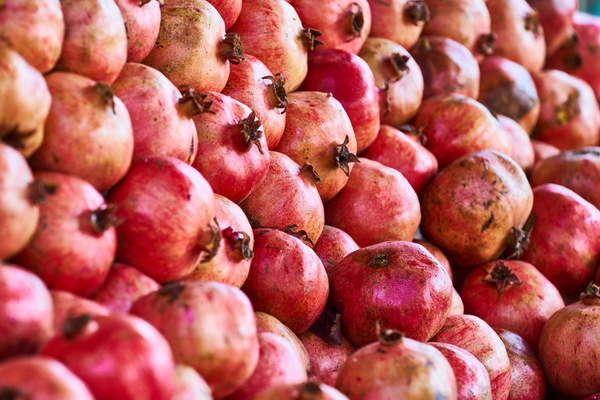Nurturing Your Childs Stomach and Spleen A Comprehensive Guide to Enhancing Digestive Health
In the fast-paced world we live in, ensuring that our children maintain good digestive health is a crucial aspect of their overall well-being. The stomach and spleen, often referred to as the roots of health, play a vital role in the body's energy production and immune system. Here is a comprehensive guide on how to nurture your child's stomach and spleen, fostering a strong and robust digestive system.
1. Balanced Diet
The first step in maintaining your child's stomach and spleen health is to ensure they receive a balanced diet. Here are some key points to consider:
- Variety: Offer a wide range of fruits, vegetables, whole grains, lean proteins, and healthy fats to provide essential nutrients.
- Timing: Encourage regular meal times to establish a routine and signal the body to begin the digestive process.
- Portion Control: Avoid overeating, as this can strain the stomach and spleen. Listen to your child's hunger cues and adjust portions accordingly.
- Hydration: Adequate water intake is essential for digestion. Encourage your child to drink water throughout the day.
2. Gentle Cooking Techniques
Cooking methods can impact the digestibility of foods. Here are some gentle cooking techniques that can help:
- Steam: Steam vegetables to preserve nutrients and make them easier to digest.

- Boil: Boiling can be a good method for grains and legumes, as it helps soften the fibers and make them more digestible.
- Sauté: Sautéing with minimal oil can preserve the natural flavors and nutrients of foods while making them more palatable for children.
3. Probiotics and Prebiotics
Introduce probiotics and prebiotics to support a healthy gut flora. Probiotics are live microorganisms that benefit the host's health, while prebiotics are non-digestible food ingredients that promote the growth of beneficial bacteria in the gut.
- Probiotic-Rich Foods: Include fermented foods like yogurt, kefir, sauerkraut, and kimchi in your child's diet.
- Prebiotic-Rich Foods: Incorporate foods rich in fiber, such as bananas, apples, asparagus, and onions, to support gut health.
4. Avoiding Harmful Foods
Certain foods can irritate the stomach and spleen, leading to discomfort and digestive issues. Here are some to avoid:
- Highly Processed Foods: These contain preservatives, artificial colors, and flavors that can disrupt the gut flora.
- Excessive Sugar: Excessive sugar can lead to an overgrowth of harmful bacteria, contributing to gut imbalances.
- Spicy Foods: Spicy foods can irritate the stomach lining and cause discomfort.
5. Stress Reduction
Stress can impact digestion and gut health. Here are some ways to help your child manage stress:
- Regular Exercise: Encourage physical activity to reduce stress levels.
- Mindfulness: Teach your child relaxation techniques such as deep breathing, meditation, or yoga.
- Adequate Sleep: Ensure your child gets enough sleep, as sleep deprivation can exacerbate stress.
6. Herbs and Supplements
Some herbs and supplements can support stomach and spleen health. However, it is essential to consult with a healthcare professional before introducing any new supplements to your child's diet.
- Ginger: Known for its anti-inflammatory properties, ginger can help alleviate digestive discomfort.
- Peppermint: Peppermint can help relax the muscles of the digestive tract, reducing symptoms of indigestion.
- Chamomile: Chamomile has calming properties and can help soothe an upset stomach.
In conclusion, nurturing your child's stomach and spleen involves a combination of proper nutrition, gentle cooking techniques, probiotics, avoiding harmful foods, stress reduction, and possibly the use of herbs and supplements. By following these guidelines, you can help ensure your child's digestive system remains healthy and robust, contributing to their overall well-being.









